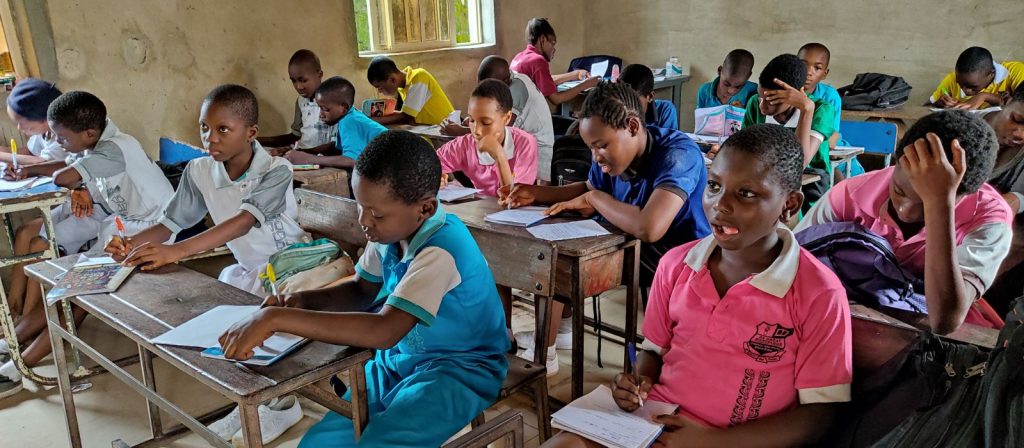
For decades, education in Nigeria has grappled with challenges like overcrowded classrooms, teacher shortages, and inadequate infrastructure. In rural areas, some children travel miles daily to reach schools, while others never get the chance to learn at all. Yet, amidst these challenges, a quiet revolution is underway—one fuelled by technology. E-learning is changing how Nigerians access and engage with education, creating new possibilities for students and teachers alike.
E-learning was not always on Nigeria’s radar, but the COVID-19 pandemic changed everything. With schools shut down indefinitely, parents, teachers, and students had no choice but to embrace online learning platforms. Companies like uLesson, Gradely, and Edutech quickly became household names. By offering engaging video tutorials, quizzes, and study resources accessible through smartphones, they made learning possible even during the toughest times.
Platforms like these do not just replicate the classroom experience; they enhance it. Students can now revisit topics at their own pace, take interactive quizzes, and track their progress—all with the click of a button. Beyond that, some platforms are tailoring their content to Nigeria’s national curriculum, ensuring students remain on track academically.
For students, e-learning has unlocked opportunities that were previously out of reach. A student in Yobe State can now access the same resources as another in Lagos, bridging the gap between urban and rural education. Teachers are also benefiting. Platforms offering professional development courses are equipping educators with modern teaching methods and tech skills, helping them adapt to this new digital age. However, the impact goes beyond convenience. For many, e-learning provides a lifeline.
Still, the road ahead is not without obstacles. Nigeria’s digital divide remains a significant barrier. Many rural areas lack reliable internet access, and even in urban regions, data costs are prohibitively high for many families. Then there is the issue of affordability. While smartphones and laptops are now more common, they are still out of reach for millions of Nigerians, especially at this time where the economic situation of the country is pitiful.
There is also a steep learning curve. Teachers and students accustomed to traditional classrooms often find the transition to digital learning overwhelming. Without proper training, even the best platforms can feel inaccessible.
Fortunately, Nigerian startups and NGOs are rising to the challenge. Platforms like uLesson offer offline features, allowing students to download lessons and access them without needing constant internet connectivity. Some organizations are introducing low-cost tablets preloaded with educational content, tailored for students in underserved communities.
In places like Kano and Bauchi, solar-powered digital learning centres have emerged, providing students with a reliable environment to learn. These hubs not only address the issue of electricity but also offer shared resources, making digital learning more inclusive.
The potential for e-learning in Nigeria is immense. Imagine classrooms powered by artificial intelligence that personalize lessons for each student’s unique needs. Or virtual reality tools that transport students to ancient Egypt during history lessons or let them explore the anatomy of the human body in 3D.
To achieve this future, collaboration will be key. The government must invest in broadband infrastructure to connect remote areas, while the private sector can continue developing innovative, affordable solutions. Parents, students, teachers, and communities also have a role to play in embracing these changes.
E-learning is no longer a luxury in Nigeria, it is a necessity. While the journey has just begun, the progress so far is promising. By bridging gaps in access, quality, and opportunity, digital education is poised to transform Nigeria’s future—one lesson at a time.



